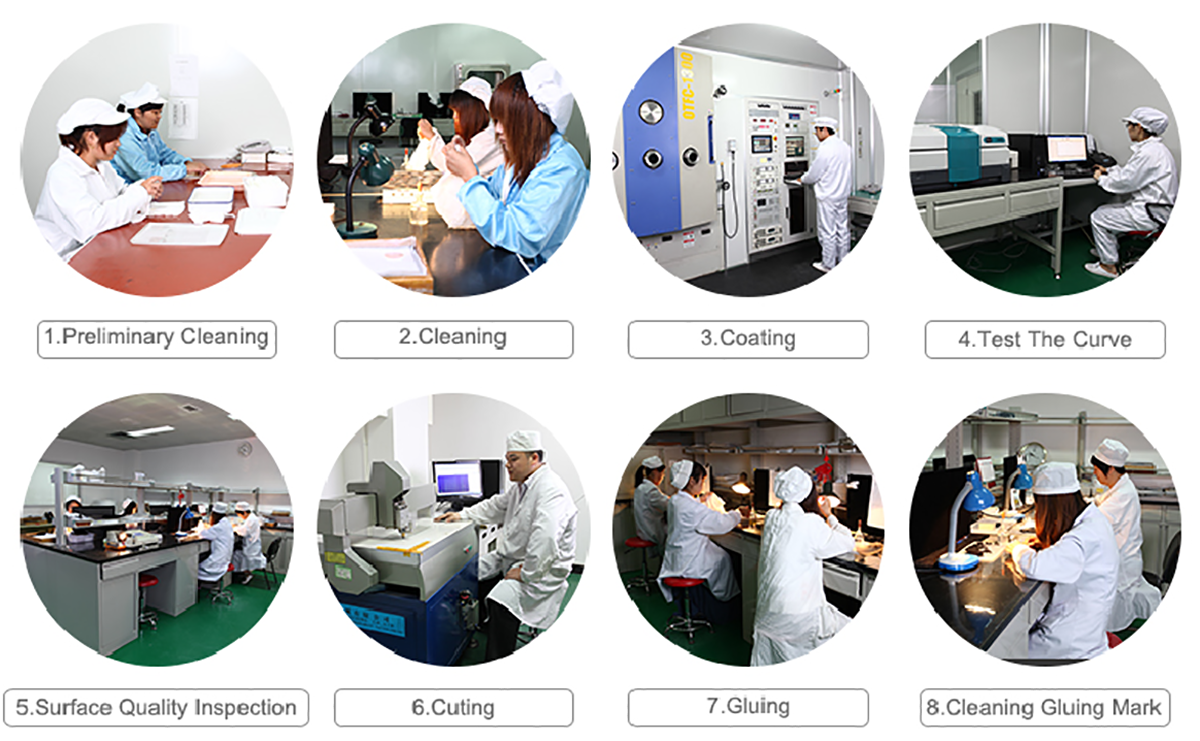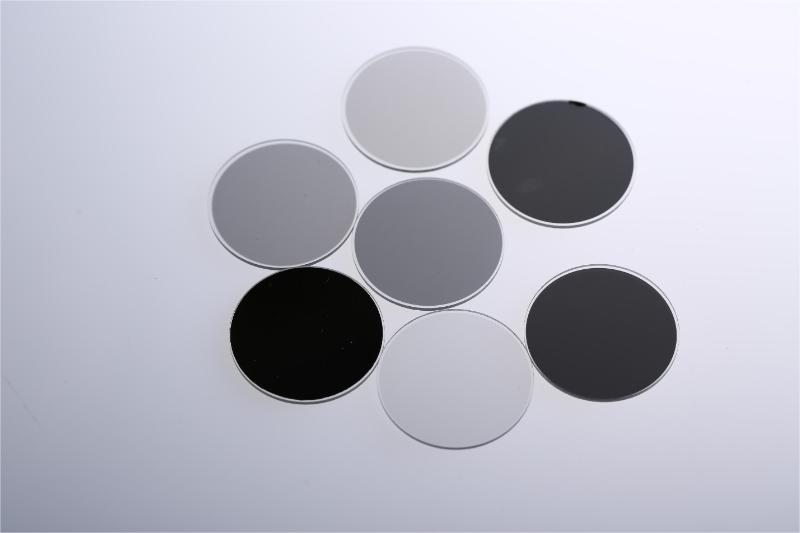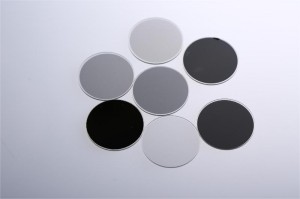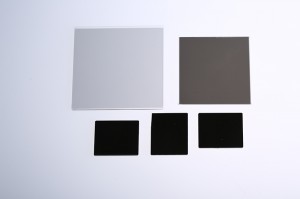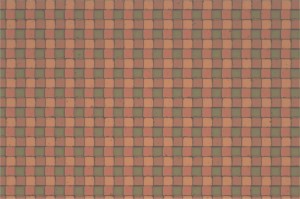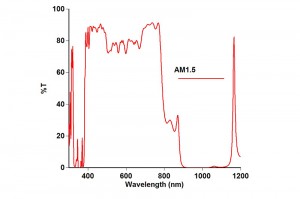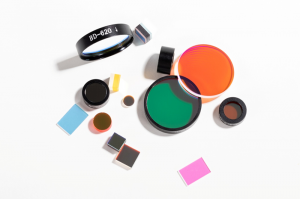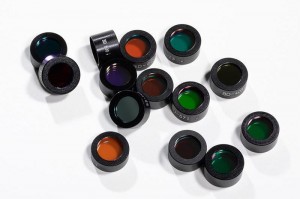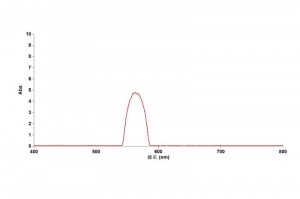
Neutral Density Sheet
Product overview
The neutral density filter is a kind of optical attenuator, which can attenuate the light intensity. After the light from the visible light region to the near-infrared light region passes through the neutral density filter, different wavelengths are attenuated in the same proportion, so that the optical element is attenuated in the same proportion. The transmittance of light energy is kept approximately equal in the broad band. Also known as neutral density filter, neutral filter, ND filter, attenuation filter, fixed density filter, etc. Neutral density filters are designed to uniformly reduce transmission over a specific part of the spectrum, and come in two main types, reflective and absorbing. Reflective ND filters consist of thin-film optical coatings, usually metallic, that have been applied to glass substrates. The coating can be optimized for specific wavelength ranges. Thin-film coatings primarily reflect light back to the source. Care needs to be taken to ensure that reflected light does not interfere with the system setup. Absorptive ND filters utilize a glass substrate to absorb a specific percentage of light.
Product Specifications
| Wavelength | 200-1000nm |
| ND | 0.1~4, etc. |
| Size | Customized according to customer needs |
Application areas
Mainly used in ultraviolet measuring instruments, various lasers, optical digital cameras, video cameras, security monitoring, various optical instruments and equipment, optical communication attenuation filters, optical imaging systems, smoke meters, optical measuring instruments, near-infrared spectrometers, biochemical analysis equipment, etc.
Spectrum
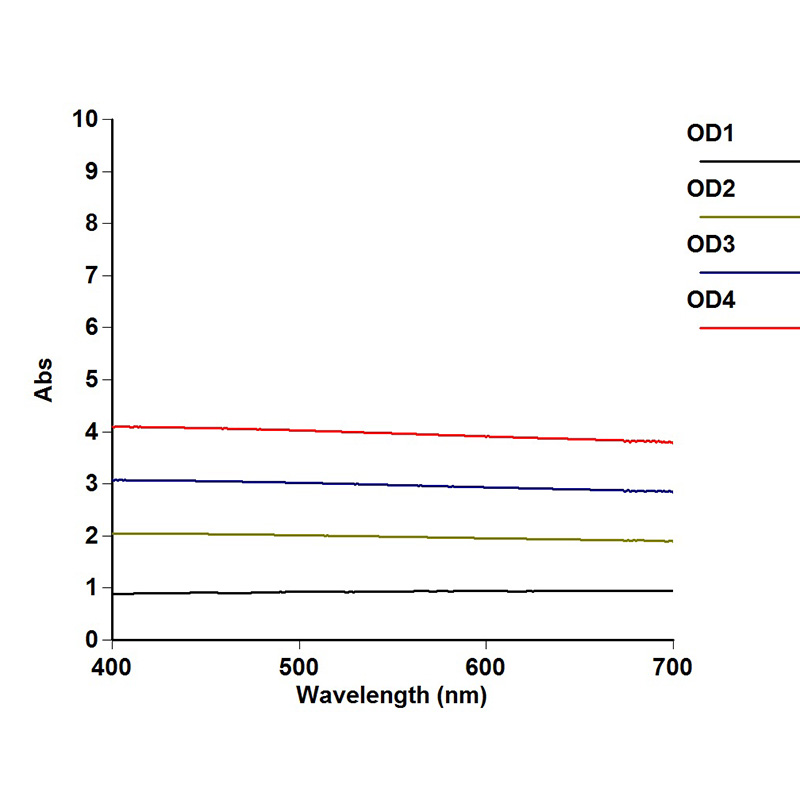
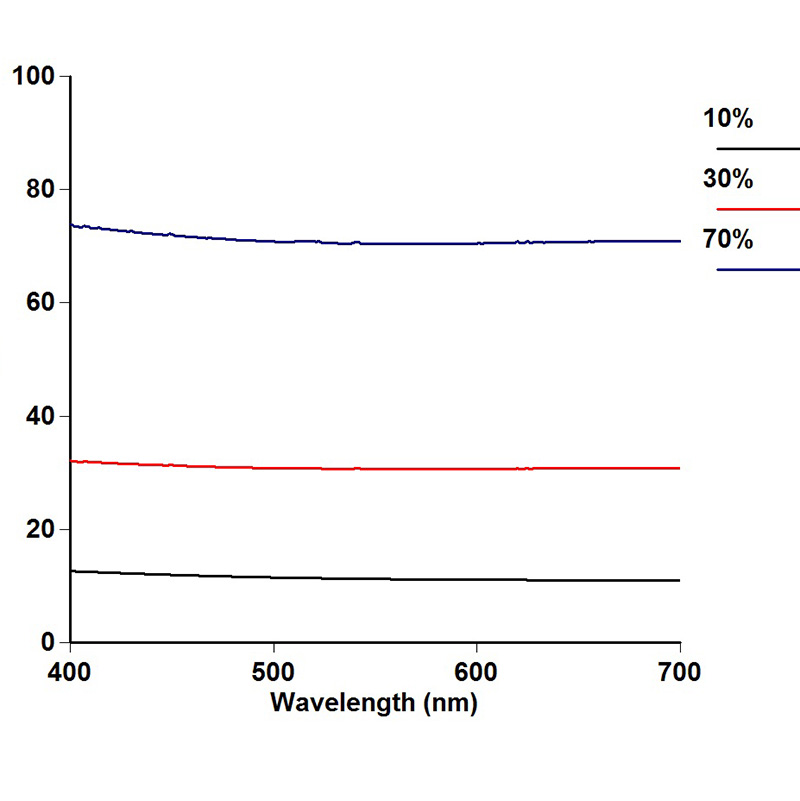
Production Proces
